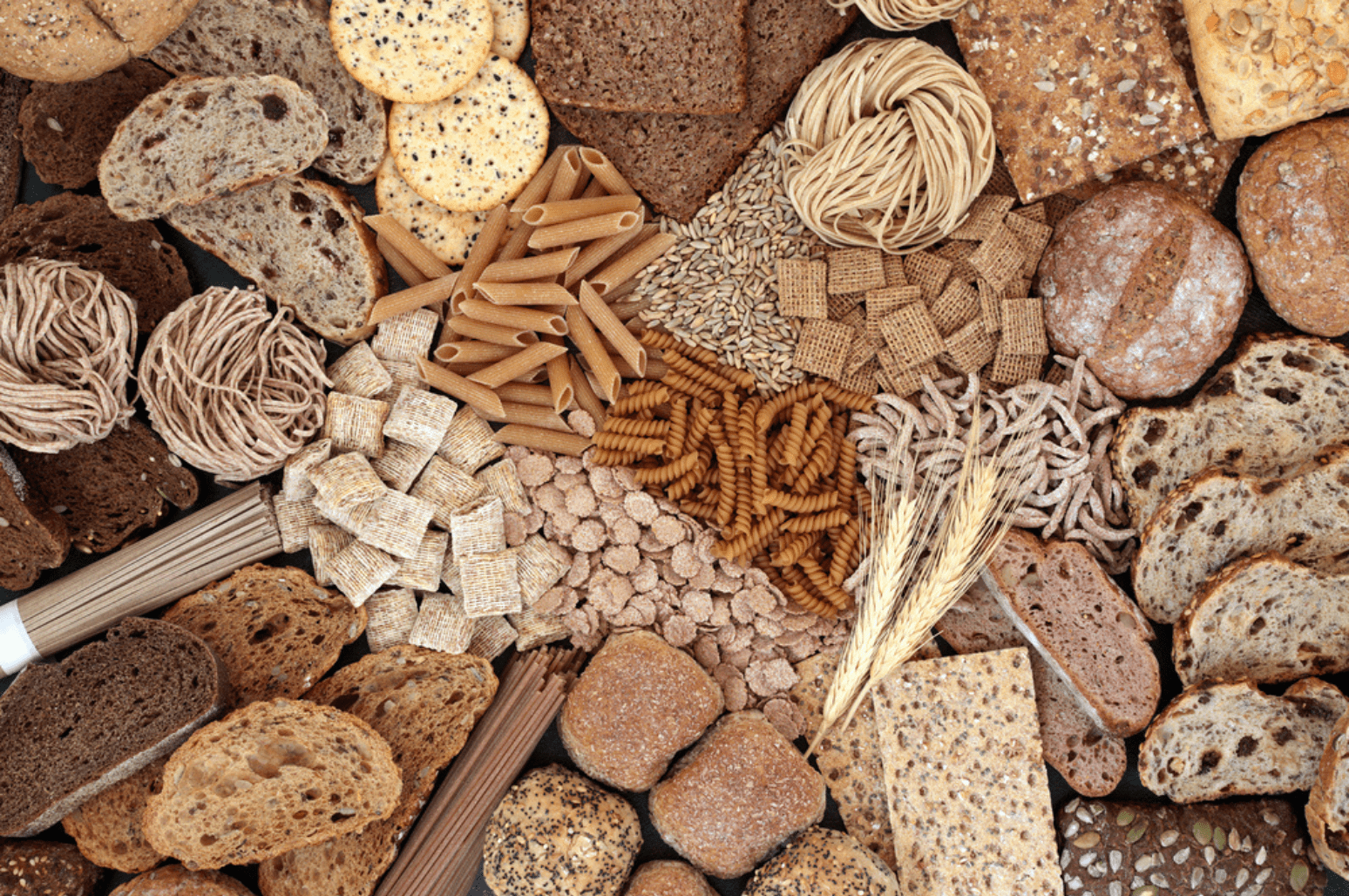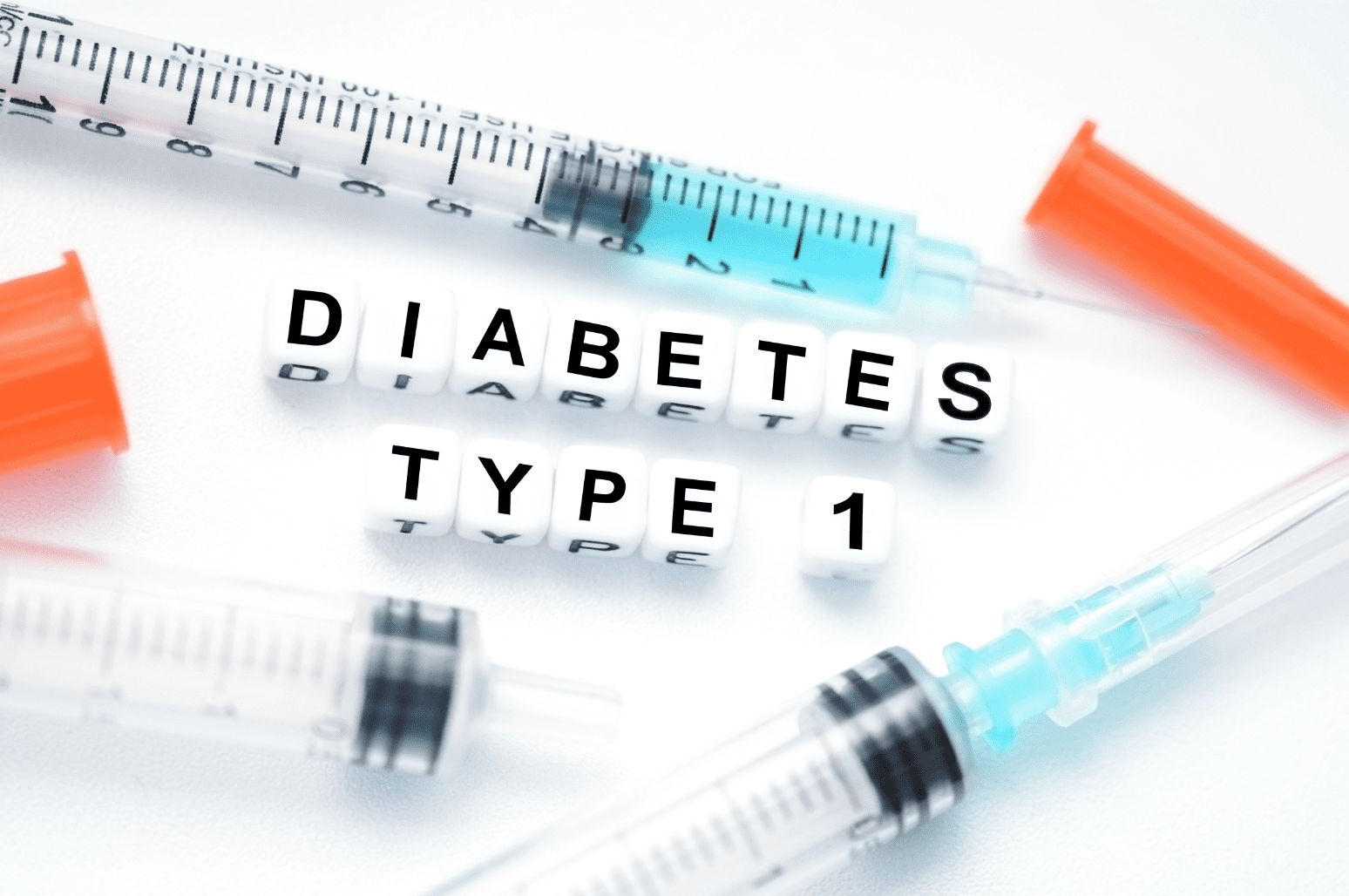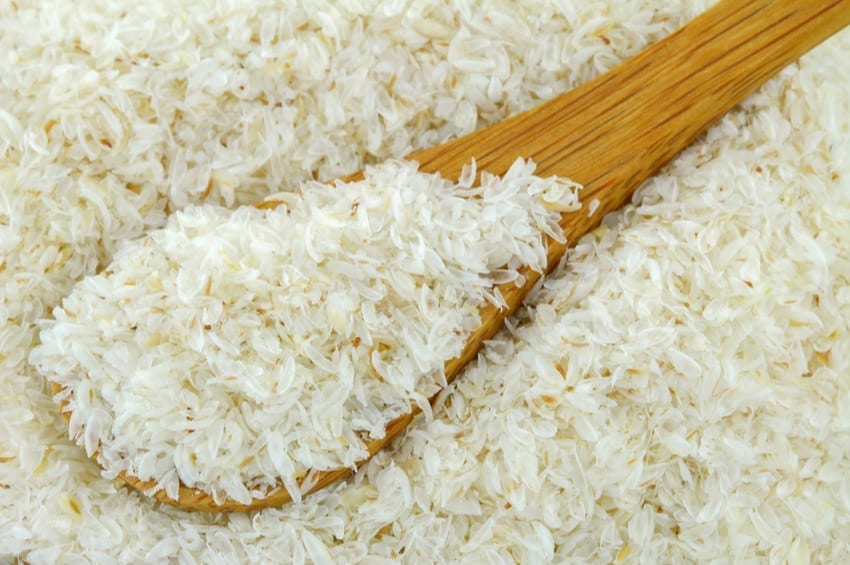
Psyllium husk is one of the latest popular fibers for conjuring up tasty treats to help with constipation. If you’ve heard of psyllium, you might be curious about what it is and what you can do with it. What are the benefits? Is it a suitable fiber for the ketogenic diet?
What is Psyllium Husk?
Psyllium is a type of fiber derived from the Plantago Ovata plants native to Western and Southern Asia. Psyllium is made from the husks (dry outer covering) of the plant’s seeds, and it’s sometimes called ispaghula.
Psyllium is most commonly consumed in wafer or powder form, and it’s often used as a thickener or binder in cooking. It’s most prevalent in dietary supplements and certain baking products, such as bread, cereal bars, and cakes. You should see the ingredient psyllium, psyllium seed, or psyllium husk on the label.
A known laxative, psyllium is also the main ingredient in numerous over-the-counter laxative medications [1].
Is Psyllium Husk Keto?
Psyllium has taken the keto world by storm. Psyllium husk is a naturally occurring soluble fiber source that breaks down in water and promotes healthy bowel movements. Psyllium husk contains the type of soluble fiber that absorbs water to form a gel. 50 grams of psyllium husk powder has around 5.5 grams of net carbs, making it keto-friendly. Since it’s more concentrated, one-half tablespoon (5 grams) of the powder form has the same nutrient profile as one tablespoon of whole psyllium husk [2].
What are the Benefits of Psyllium Husk On Keto?
This fiber has a range of health benefits, such as:
- Improving digestive health
- Increasing satiety and promoting weight loss
- Regulating blood sugar levels
- Reducing the risk of cardiovascular disease
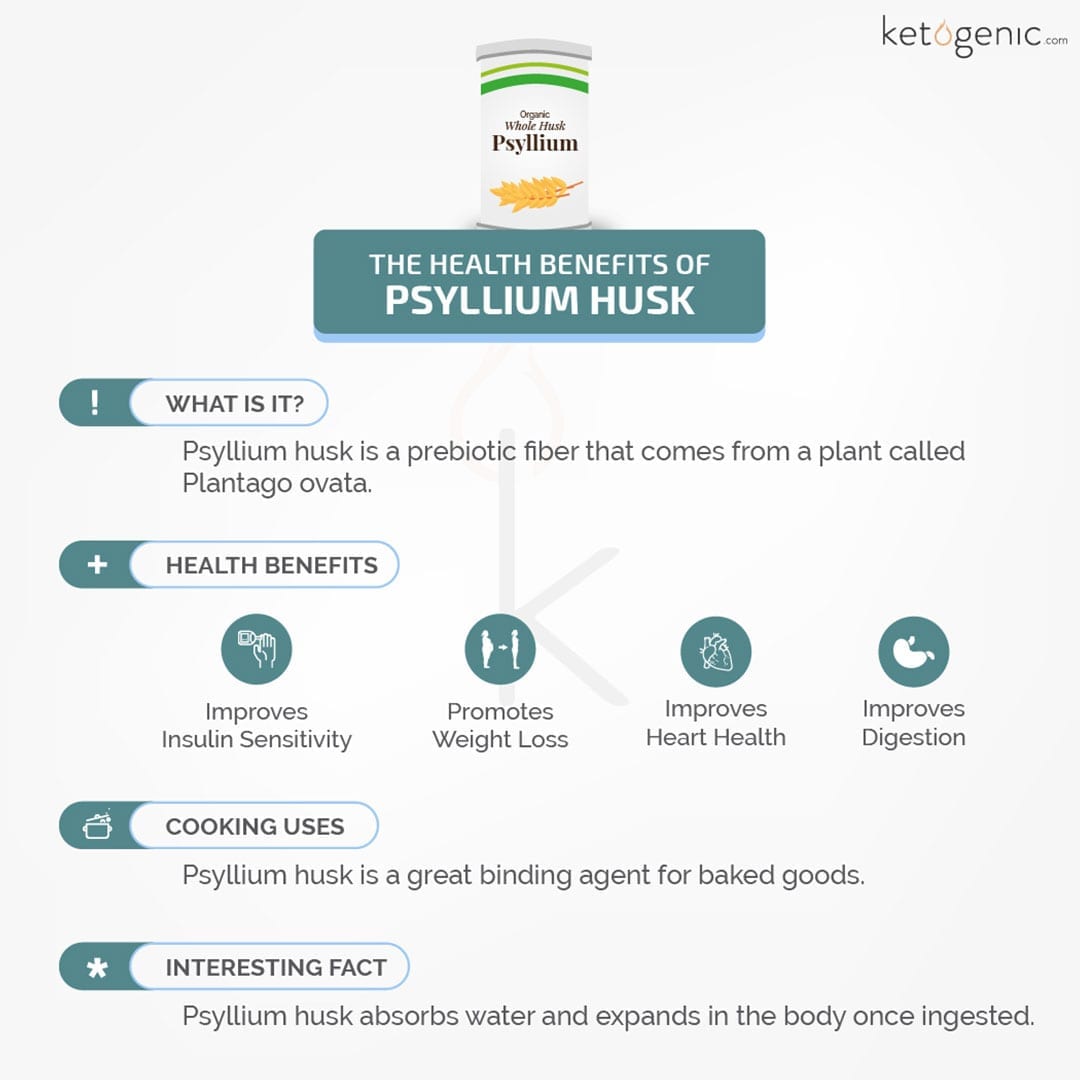
The fiber in the psyllium might help with a range of digestive issues. Fiber has been linked to various health benefits, such as relieving constipation and maintaining a healthy body weight [3]. Low dietary fiber is a risk factor for chronic constipation [4].
Psyllium is also a prebiotic that feeds healthy bacterial colonies (probiotics) in the digestive system. Psyllium absorbs liquid in your body, giving you a feeling of fullness, which might promote weight loss. 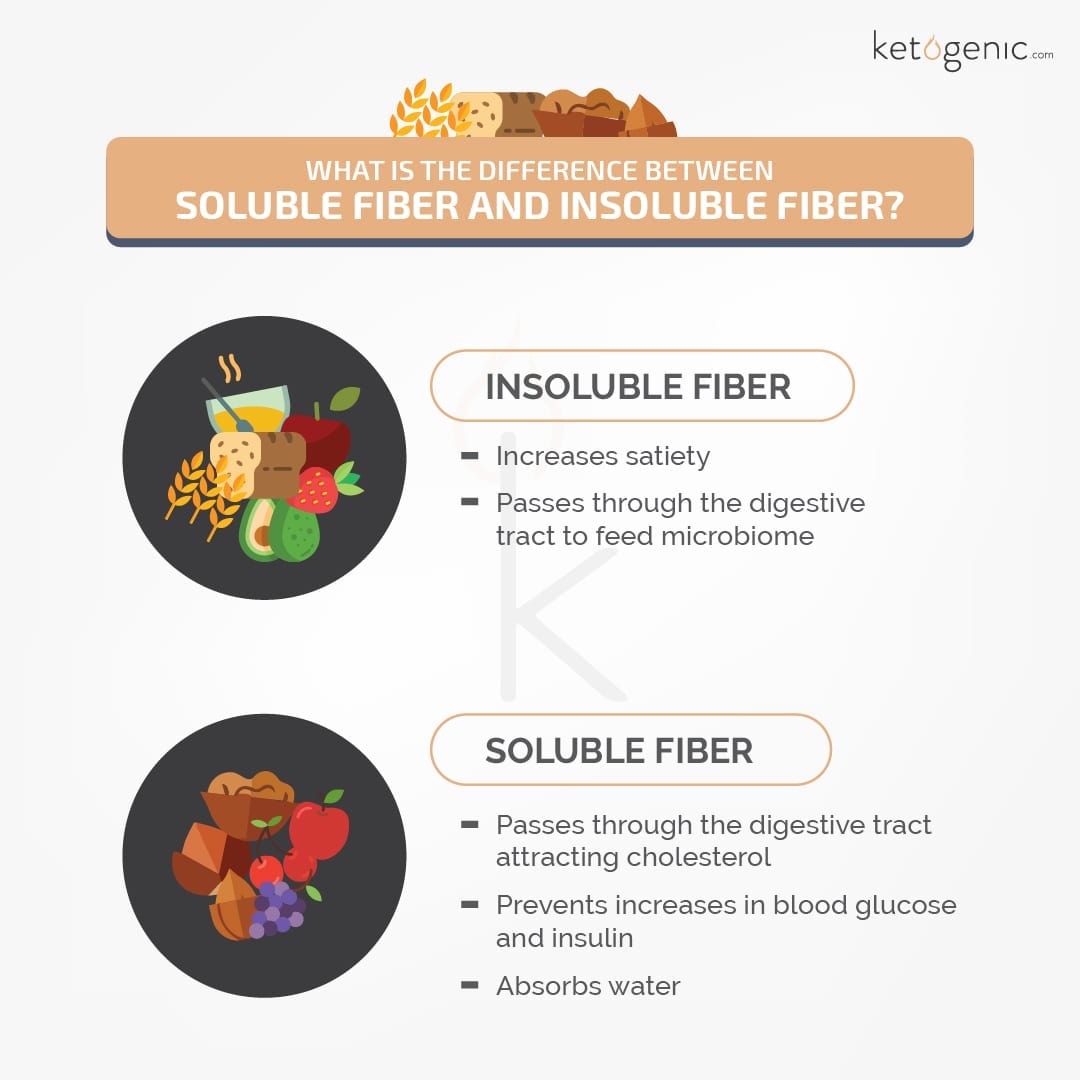
When it comes to heart health, soluble fiber can help manage cholesterol, improve lipid levels, and lower blood pressure [5].According to the research, psyllium, as a regular part of your diet might help regulate blood sugar and improve type 2 diabetes [6].
Psyllium is a healthy food overall, but it might not be ideal for everyone. If you have side effects of consuming too much psyllium husk, you might experience gas, nausea, or abdominal cramps.
How Do I Include Psyllium Husk on a Keto Diet?
You can enjoy psyllium in many different ways, including mixing it into smoothies or baked goods. Try using this fiber with these delicious keto recipes:
- Bacon Keto Chocolate Donuts
- Keto Cauliflower Bread
- Keto Zesty Curry
- Keto Pancakes with Peanut Butter Frosting
- Keto Croissants
Do You Include Psyllium Husk in Your Keto Diet?
What are your favorite ways to consume psyllium husk? Share your top tasty recipes!
References
Calorie Control Council. Psyllium,
Self Nutrition Data. Psyllium Husk Powder Nutrition Facts & Calories,
Anderson, J. W., Baird, P., Davis, R. H., Ferreri, S., Knudston, M., Koraym, A., Waters, V., & Williams, C. L. (2009). Health benefits of dietary fiber. Nutrition Reviews, 67(4), 188-205.
Morais, M. B., Vitolo, M. R., Aguirre, A. N. C., & Fagundes-Neto, U. (1999). Measurement of low dietary fiber intake as a risk factor for chronic constipation in children. Journal of Pediatric Gastroenterology and Nutrition, 29(2), 132-135.
Pal, S., Khossousi, A., Binns, C., Dhaliwal, S., & Ellis, V. (2011). The effect of a fibre supplement compared to a healthy diet on body composition, lipids, glucose, insulin, and other metabolic syndrome risk factors in overweight and obese individuals.British Journal of Nutrition, 105(1), 90-100.
Aliziai, S., Larijani, B., Akhoondzadeh, S., Fakhrzadeh, H., Dastpak, A., Bandarian, F., Rezai, A., Badi, H. N., & Emami, T. (2005). Psyllium decreased serum glucose and glycosylated hemoglobin significantly in diabetic outpatients. Journal of Ethnopharmacology, 102(2), 202-207.



